简体中文
繁體中文
English
Pусский
日本語
ภาษาไทย
Tiếng Việt
Bahasa Indonesia
Español
हिन्दी
Filippiiniläinen
Français
Deutsch
Português
Türkçe
한국어
العربية
Broker Comparison: FXTM vs XM
Abstract:Choosing the right broker is a critical decision for traders. This article compares FXTM and XM based on basic information, regulatory status, leverage, trading platforms, account types, spreads and commissions, customer service, AI tools, and recent updates. We aim to present an unbiased overview so that you can choose the best broker suited to your needs.
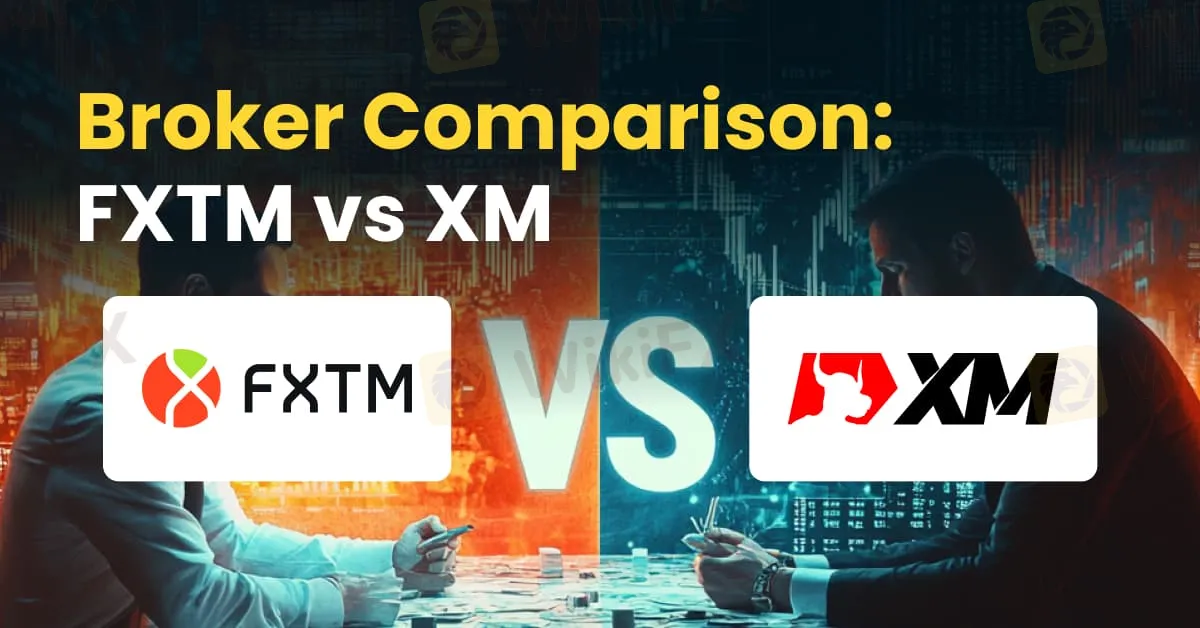
Choosing the right broker is a critical decision for traders. This article compares FXTM and XM based on basic information, regulatory status, leverage, trading platforms, account types, spreads and commissions, customer service, AI tools, and recent updates. We aim to present an unbiased overview so that you can choose the best broker suited to your needs.
1. Basic Information
FXTM:
- Founded: 2011
- Global Presence: FXTM has built a reputation as a global forex and CFD broker with a wide array of tradable instruments, including forex, stocks, indices, commodities, cryptocurrencies, and more.
- Key Focus: FXTM is often noted for its diverse account options and copy trading features, appealing especially to traders seeking advanced trade replication tools.
XM:
- Founded: 2009
- Global Presence: XM is well established and offers over 1,000 trading instruments, spanning forex, commodities, stocks, and indices.
- Key Focus: XM is known for its low minimum deposit (as low as $5 for many accounts) and its educational and market analysis resources, which are particularly attractive to beginners.
2. Regulatory Status
Both brokers are subject to rigorous oversight by multiple authorities, ensuring a high level of investor protection.
- FXTM:
Regulated by top-tier bodies such as the Financial Conduct Authority (FCA) in the UK and the Financial Services Commission (FSC) in Mauritius (among others).
- XM:
Regulated by prominent agencies, including ASIC (Australia), CySEC (Cyprus), DFSA (Dubai), and the IFSC (Belize).
Both brokers adhere to strict regulatory standards; however, the exact regulatory environment and available investor protection schemes can vary by region.


3. Leverage
Leverage levels can greatly influence your trading exposure.
- FXTM:
Depending on the account type and regulatory jurisdiction, FXTM offers leverage up to 1:3000. In regions with regulatory restrictions (such as the EU), maximum leverage is capped—often around 30:1.
- XM:
XM provides leverage up to 1:1000 in many cases. Similar to FXTM, regional limitations may apply (for example, lower leverage levels in the EU).
Traders should choose leverage carefully based on their risk tolerance and regulatory guidelines in their region.
4. Trading Platforms
Both FXTM and XM offer robust and popular trading platforms, primarily built around the MetaTrader family.
- FXTM:
Offers MetaTrader 4 (MT4) and MetaTrader 5 (MT5) along with mobile trading applications. FXTM also features its own copy trading service (FXTM Invest) that appeals to those looking for automated trade replication.
- XM:
Provides access to both MT4 and MT5, along with a proprietary mobile app. XMs platforms are enhanced with comprehensive charting tools and educational add-ons, making them especially beginner-friendly.
Ultimately, both brokers give you the essential tools for effective trading, so the choice may come down to personal platform preference or additional features like copy trading.
5. Account Types
The structure and variety of accounts can help tailor your trading experience.
- FXTM:
Offers several account types—commonly the Advantage, Advantage Plus, and Advantage Stocks accounts. These accounts are designed to cater to different trading strategies, whether youre seeking tighter spreads with commissions or commission-free trading on specific instruments.
- XM:
Provides a range of accounts including Standard, Ultra-Low (with tighter spreads and swap-free options), and Shares accounts. XM is noted for its low entry barrier, with some accounts requiring only a $5 minimum deposit.
Each brokers account types are structured to meet varying trader needs. Your choice might depend on factors like initial capital, desired spreads, and whether you prioritize copy trading or a broader asset offering.
6. Spreads and Commissions
Cost structure is a key factor in trading efficiency.
- FXTM:
FXTMs Advantage account offers spreads from 0.0 pips (with a commission typically around $3.50 per lot), while the Advantage Plus account is commission-free with slightly wider spreads.
- XM:
XM provides competitive, variable spreads—with its Zero account offering spreads as low as 0.0 pips (charged with a commission), and its other account types featuring slightly higher spreads but no commission.
Both brokers aim to offer cost-effective trading, so the best choice will depend on your trading volume and whether you prefer paying a commission for lower spreads or opting for a commission-free model.
7. Customer Service
Efficient and accessible customer support is crucial for a smooth trading experience.
- FXTM:
FXTM offers 24/5 customer support via live chat, email, and telephone. Its support is generally well-regarded, although some users have noted that certain payment methods and regional options may have additional fees.
- XM:
XM provides multilingual customer support around the clock during market hours, with services available via live chat, email, and phone. XMs support is especially praised for its responsiveness and helpfulness.
Both brokers are committed to assisting traders; your regional location and preferred communication method might influence your experience.
8. AI Tools and Recent Updates
The integration of advanced technology can provide a competitive edge.
- FXTM:
FXTM has introduced innovative features such as FXTM Invest for copy trading. While detailed AI tools are not heavily advertised, FXTM does offer advanced market analytics and research resources to support decision-making.
- XM:
XM is known for its extensive educational resources and research tools, including market analysis, technical indicators, and proprietary trading insights. Although XM does not emphasize AI tools specifically, its platform continuously evolves with regular updates and innovative features.
Both brokers leverage technology to enhance the trading experience, so consider which suite of tools aligns with your trading strategy.
9. Conclusion
FXTM and XM both provide robust trading environments with high regulatory standards, competitive costs, and popular trading platforms.
- FXTM may be more appealing if you value a broad range of account options—including copy trading features and potentially higher leverage options (subject to local regulations).
- XM stands out for its low minimum deposit, extensive educational resources, and flexible account types suited to both beginners and experienced traders.
Ultimately, your choice will depend on your trading style, capital availability, regional regulatory requirements, and specific features that matter most to you. For further detailed comparisons, we recommend checking out the WikiFX broker comparison tool.
Trading forex and CFDs involves significant risk, and you should only trade with funds you can afford to lose. Please conduct your own research or consult with a professional advisor before making any trading decisions.

Disclaimer:
The views in this article only represent the author's personal views, and do not constitute investment advice on this platform. This platform does not guarantee the accuracy, completeness and timeliness of the information in the article, and will not be liable for any loss caused by the use of or reliance on the information in the article.
Read more
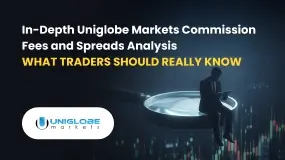
In-Depth Uniglobe Markets Commission Fees and Spreads Analysis – What Traders Should Really Know
For experienced traders, the cost of execution is a critical factor in broker selection. Low spreads, fair commissions, and transparent pricing can be the difference between a profitable and a losing strategy over the long term. This has led many to scrutinize the offerings of brokers like Uniglobe Markets, which presents a tiered account structure promising competitive conditions. However, a professional evaluation demands more than a surface-level look at marketing claims. It requires a deep, data-driven analysis of the real trading costs, set against the backdrop of the broker's operational integrity and safety. This comprehensive Uniglobe Markets commission fees and spreads analysis will deconstruct the broker's pricing model, examining its account types, typical spreads, commission policies, and potential ancillary costs. Using data primarily sourced from the global broker inquiry platform WikiFX, we will provide a clear-eyed view of the Uniglobe Markets spreads commissions prici
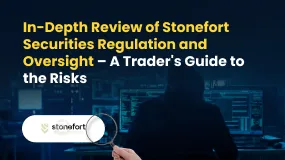
In-Depth Review of Stonefort Securities Regulation and Oversight – A Trader's Guide to the Risks
For experienced traders, the process of selecting a new broker transcends a simple comparison of spreads and leverage. It is a meticulous due diligence exercise where the integrity of the broker's regulatory framework is paramount. Stonefort Securities, a relatively new entrant in the crowded brokerage space, presents a complex and often contradictory profile. On one hand, it boasts a modern MT5 platform and a stream of positive user testimonials. On the other hand, it is shadowed by severe regulatory warnings that question the very foundation of its operations. This in-depth review focuses on the core issue for any long-term trader: Stonefort Securities regulation and oversight. We will dissect the broker's corporate structure, scrutinize its licensing claims, and analyze what the data implies for trader protection and fund security. For traders evaluating whether Stonefort Securities is a trustworthy partner, understanding these details is not just important—it is essential.
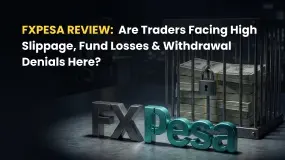
FXPesa Review: Are Traders Facing High Slippage, Fund Losses & Withdrawal Denials?
Do FXPesa support officials fail to pick up your calls when you raise fund withdrawal requests with the broker? But are these officials always open to you regarding fund deposits? Do you frequently spot slippage and stop-loss order execution errors on the FXPesa login? These issues are increasingly becoming common with this forex broker. Consequently, many traders have expressed their dissatisfaction with the broker online. In this FXPesa Review article, we have shared some of these complaints. Take a look!
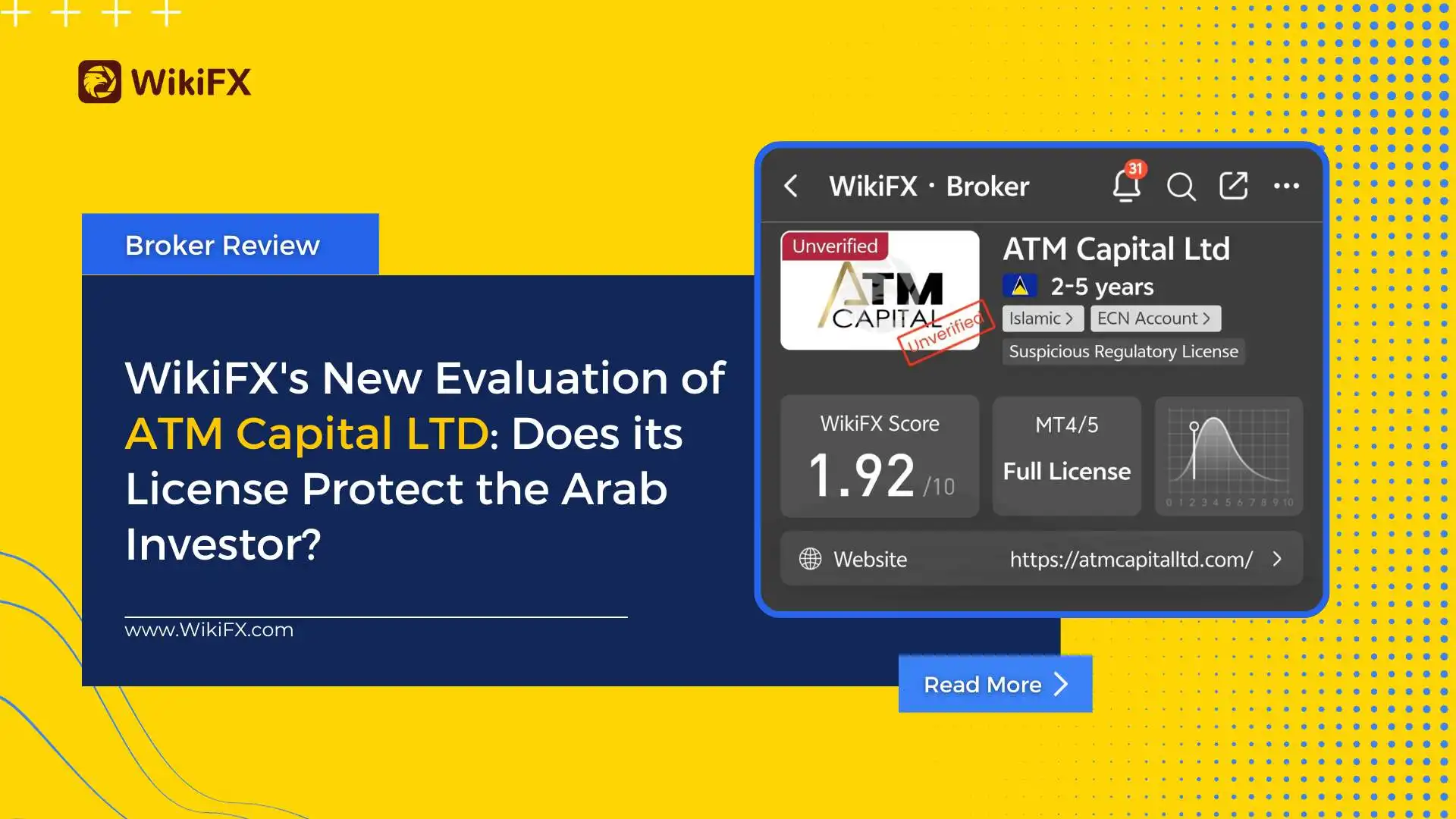
WikiFX's New Evaluation of ATM Capital LTD: Does its License Protect the Arab Investor?
WikiFX Evaluation reveals that ATM Capital LTD only scored 1.92 points. Check the company's unverified license and the risks of Arab investment.
WikiFX Broker
Latest News
WikiFX's New Evaluation of ATM Capital LTD: Does its License Protect the Arab Investor?
How a Fake Moomoo Ad Led to the “New Dream Voyage 5” Scam
Is Axi Legit? A Data-Driven Analysis of Its Regulatory Standing and Trader Feedback
FXPesa Review: Are Traders Facing High Slippage, Fund Losses & Withdrawal Denials?
Trive Investigation: High Score, Hidden Risk - The Profit Paradox
In-Depth Uniglobe Markets Commission Fees and Spreads Analysis – What Traders Should Really Know
Bessent believes there won't be a recession in 2026 but says some sectors are challenged
Is GGCC Legit? A Data-Driven Analysis for Experienced Traders
Young Singaporean Trader Grew USD 52 into a USD 107,700 Portfolio
In-Depth Review of INZO Trading Conditions and Product Offering – A Data-Driven Analysis
Currency Calculator




